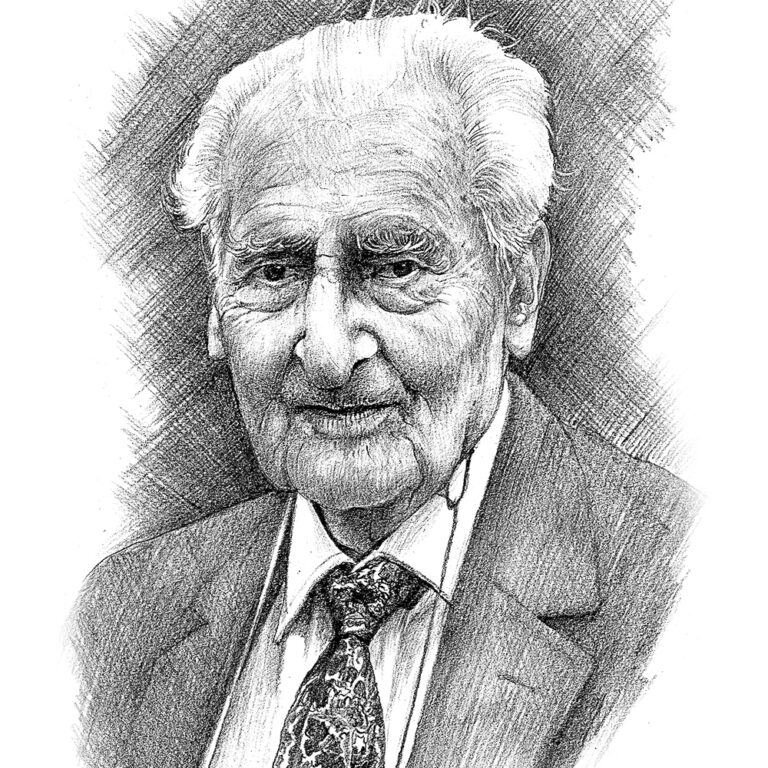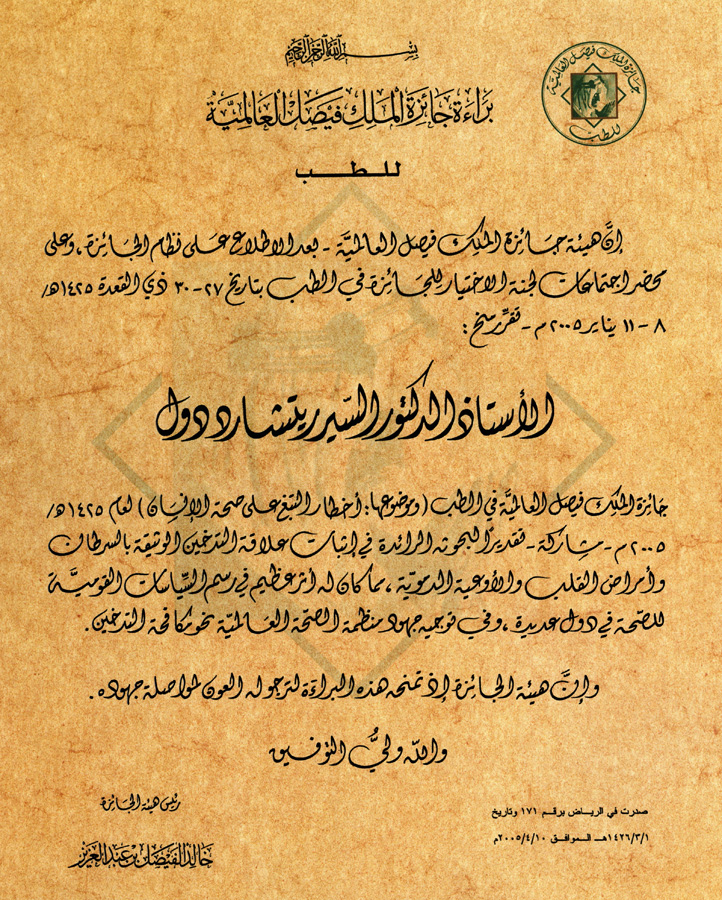

Professor Sir Richard Doll
King Faisal Prize in Medicine 2005 Laureate
Topic: "Tobacco Risks on Human Health "
Prevention, nevertheless, still remains better than cure

Richard Doll graduated from St. Thomas’s Hospital Medical School in 1937 and received an M.D. in 1945 and a D.Sc. in 1958 from London, and a D.M. in 1969 from Oxford University. In 1969, he became a Regius Professor of Medicine, the most senior medical position at Oxford University. He held this position until 1979, when he became the founding Warden of Green College. He also served as a Director of the Imperial Cancer Research Fund’s Epidemiology and Clinical Trials Service Unit (CTSU) at Oxford, where he later became an Honorary Member of CTSU.
Sir Richard Doll was one of the greatest cancer epidemiologists. His 1950 and 1951 papers with Bradford Hill were two of several papers published around that time about an association between smoking and cancer risk. The association was not proof of causality and many in the medical profession and the public doubted the existence of a real link. Doll’s next, extraordinary contribution was to initiate a 50 year long cohort follow-up study of about 40,000 British doctors, which examined cancer risk in relation to various aspects of smoking (duration in years, numbers of cigarettes, etc). The first results of that study were published in 1954; the latest in 2004, marking the exact 50th anniversary of the first publication. The study provided indisputable evidence that cigarette smoking itself (or the tar inhaled therefore) was quantitatively linked to the risk of lung cancer. The causal link was heavily endorsed by a large body of molecular biological data showing that particular chemicals in cigarette tar damage DNA and cause mutations.
For a period of more than 30 years, Sir Richard worked in collaboration with his protégé and colleague at Oxford Professor Sir Richard Peto, on both the 50 year cohort study and to document the worldwide disease burden from tobacco consumption. They showed that annual mortality worldwide from tobacco-related deaths from lung and other cancers and heart disease was truly staggering, around 3 million and rising, with additional morbidity to other organs and the developing fetus. Their worldwide death estimates caused by tobacco smoking were 100 million in the 20th century and could be up to one billion in the present century if no efforts are made to curtail smoking drastically.
Sir Richard Doll brought to this field of medical research an unusual mix of his medical training with the rigor of mathematics and statistics. His persistence with a major health problem for 50 years, often in the face of hostile criticism, was unique. He received numerous honorary degrees and awards. He was a distinguished fellow of the Royal Society and received a knighthood for his services to medicine in 1971. In 1996, he was made a Companion of Honor in recognition of his outstanding achievements. Sir Richard is unique in having witnessed both global acceptance of his work demonstrating smoking as the main source of one of the most fatal cancers in the world, and the relative success of strategies to reduce the prevalence of smoking.
This biography was written in the year the prize was awarded.
Professor Sir Richard Doll passed away in Oxford on 24/7/2005.


